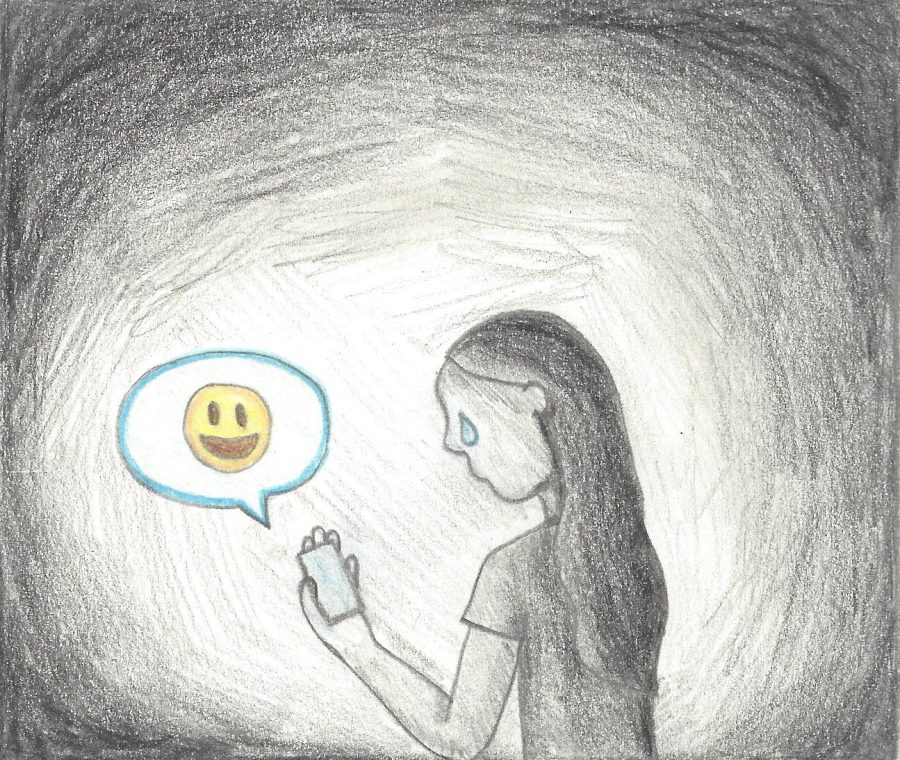Fake Social Media Creates Fake Expectations
January 5, 2022
By now, we all should know that most of social media is fake. What we see on social media is never the whole story and has been edited to reflect whatever narrative that the person wants to portray. Over the past 10-to-15 years, social media has dominated our digital lives, and increasing alarm is being raised about the effects of these platforms on our mental health.
As members of Gen Z, we are the first generation to have grown up with social media around us our entire lives. Deep down, we all know that most of what we see is nothing more than a distorted narrative of someone’s life.
But for some reason, we still fall victim to the lies.
So as the digital landscape continuously evolves, the pressures to post—and how to post—on each platform keeps changing.
For several users and mental health experts the very idea of Instagram is the problem. It encourages its users to present an upbeat, attractive image. But despite this, others may find at best misleading and at worse harmful. If Facebook demonstrates that everyone is boring and Twitter proves that everyone is awful, Instagram makes you worry that everyone is perfect, except you.
Instagram especially targets teen girls. Research from Facebook about the effects of Instagram and social media was leaked in 2019 but has only now become easily accessible online. Facebook, having kept this internal research secret for two years, suggests that its Instagram app really does make body image issues worse for teenage girls.
Since at least 2019, staff at the company have been studying the impact of their apps on its younger users’ states of mind. Their research has repeatedly found that it is harmful for a sizable proportion, especially teen girls.
“We make body image issues worse for one in three teen girls,” said a slide from one internal presentation in 2019, seen by the Wall Street Journal. “Thirty-two percent of teen girls said that when they felt bad about their bodies, Instagram made them feel worse,” this presentation reported in March 2020.
Being fed ads for fitness trainers, the perfect diet, or bikini models with perfect bodies while you look through your feed, put the idea into girls’ minds that they aren’t perfect enough and that they should use the fitness trainer and the perfect diet to get the bikini model’s perfect body.
While it may not always be on purpose, Instagram is always subconsciously putting ideas into teenage girls’ heads.
The best way to prevent this would be to get rid of Instagram but that may be impossible because this billion-dollar industry that is owned by a trillion-dollar industry, has about 1.386 billion users.
But to try to reduce the harmful effects of social media on children and young adults, many people and mental health organizations are calling for social media companies to make changes. There are recommendations of the introduction of a pop-up “heavy usage” warning within these apps or website. In a survey about 71% of respondents said they’d support this.
Besides, the falsehoods and harmful effects of Instagram, it can be used for some positive influence. There are more and more positive influencers promoting body positivity, support for mental health and just more events and things that will help people and the overall world.
To promote the more positive side of Instagram, the site should limit the ads of off-season brands, add pop-up to show edited images and/or heavy usage, and continue to further promote positivity on feeds.






























